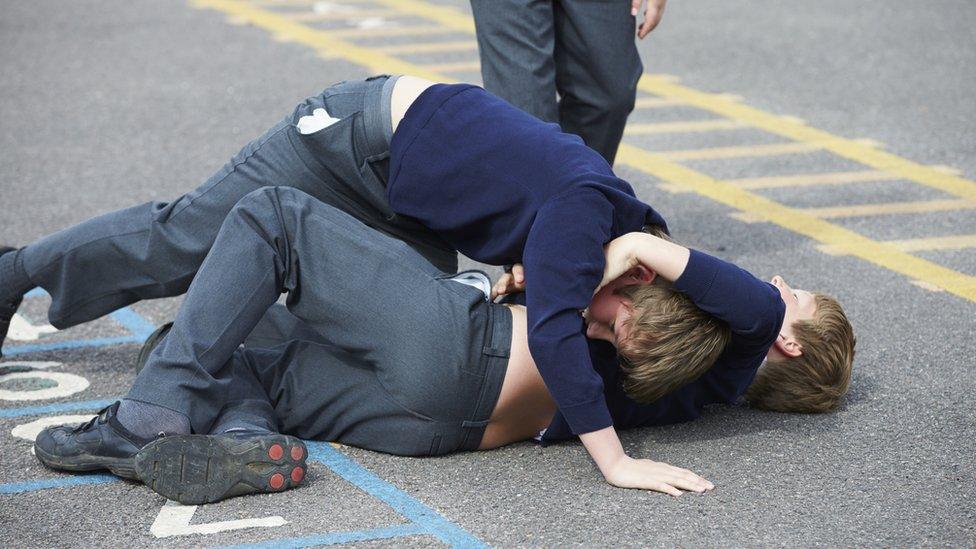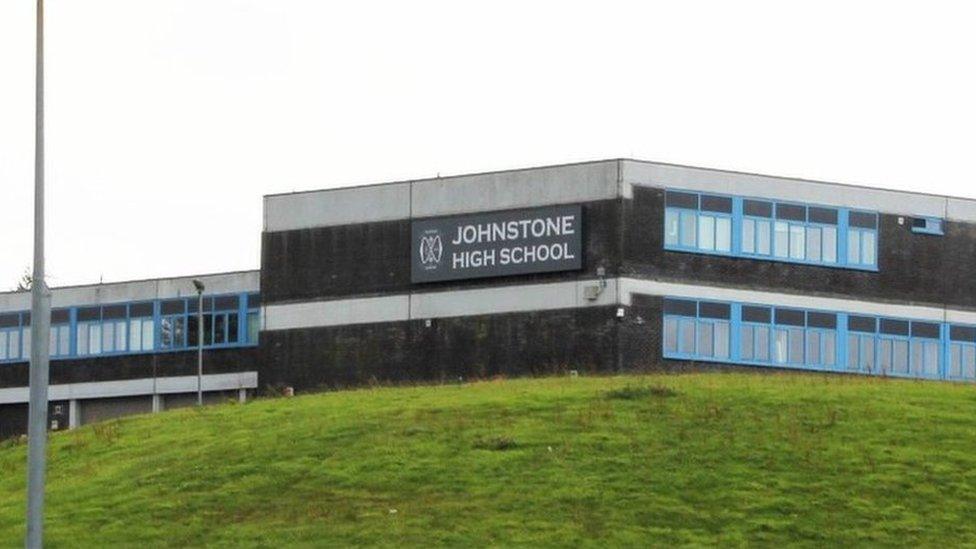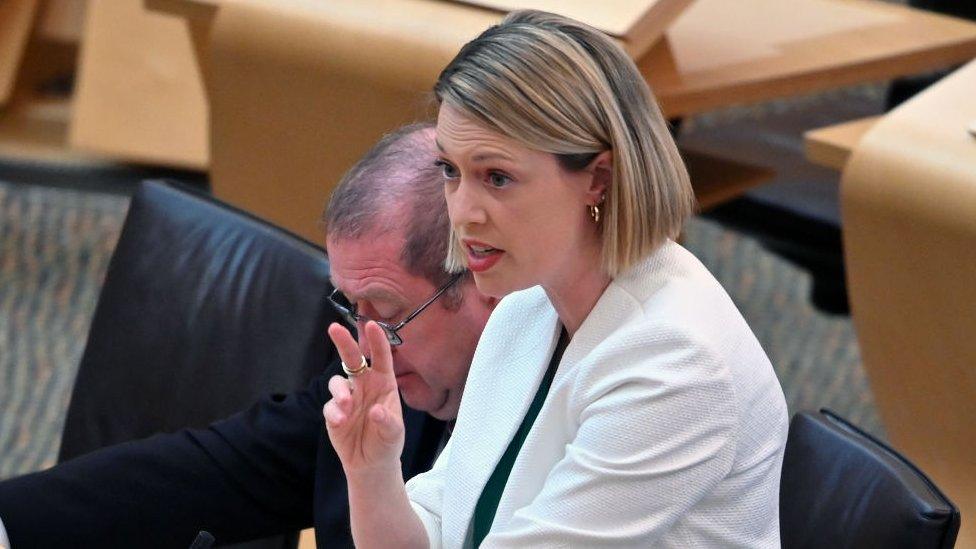Summit aimed at tackling pupil violence to be held
- Published

Teaching unions believe pupil behaviour has got worse since the pandemic
The Scottish government is to hold a summit aimed at tackling violence and disruption in the country's schools.
The announcement comes two weeks after three teachers and a pupil were injured after being attacked by a former pupil at Johnstone High School.
Several social media videos of violent incidents involving pupils have also been highlighted by the media.
Unions have said school staff regularly face physical and verbal attacks in the classroom.
The announcement of the summit came ahead of a Scottish Conservative-led debate on the issue at Holyrood on Wednesday afternoon.
Education Secretary Jenny Gilruth said the summit would bring together young people, parents and carers, schools, local authorities, unions, and campaigners to identify how best to tackle the problem.
She added: "Any form of violence in our schools is completely unacceptable.
"No teacher or pupil should suffer verbal or physical abuse, and parents should be able to send their children to school knowing that they are safe."
Ms Gilruth told the NASUWT teaching union conference last week that many pupils were struggling in the wake of the pandemic and the cost-of-living crisis.

Three teachers were taken to hospital with minor injuries after a violent disturbance involving a former pupil at Johnstone High School earlier this month
The father of a pupil who has been on the receiving end of threats and violence in a secondary school told BBC Scotland that he feared it was only a matter of time before a child was beaten to death.
He said the pupils responsible for attacks against his son and other children - which had left some of them with serious injuries - were known to the police, the school and local council.
But he said that the authorities had been unable and unwilling to do anything about it - and claimed they were instead "very much sweeping all of this under the carpet and trying to give the impression that these things are not happening".
He said there needed to be a change of policy that would allow proper action to be taken, adding: "The way things are going it is going to get worse".
Scottish Conservative education spokesman Stephen Kerr welcomed the announcement of the summit, but said Ms Gilruth must now "must match her words with actions".
Mr Kerr said these actions should include an comprehensive action plan to tackle classroom violence before the start of the new school year and a funding package to help both victims and perpetrators of violence.
He also said a new national helpline should be set up to support teachers and staff who are afraid to report violence or disruption within their workplace.
Mr Kerr added: "The unacceptable escalation of violent incidents in Scottish schools is nothing short of a national scandal.
"The SNP have had their eye off the ball for far too long and every day without action fails our teachers and young people".
How bad is violence in Scottish schools?
Figures released last week, external showed that 10,852 incidents were reported in Scotland's primary schools in 2021/22 compared to 10,772 in 2018/19.
In secondary schools, there were 2,951 reports of violence in 2021/22 compared to 2,728 in 2018/19.
In the current 2022/23 year, 9,784 incidents have so far been recorded in primaries and 2,542 in secondaries.
However, the figures - which were released following freedom of information requests by the Scottish Liberal Democrats - do not show the full picture.

Education Secretary Jenny Gilruth believes many pupils are struggling in the wake of the pandemic and cost of living crisis
The numbers do not include Glasgow, which is by far Scotland's largest local authority, or South Ayrshire as they were unable to provide the data.
And some councils only provided figures for violence against staff while others included attacks against pupils.
Scotland's largest teaching union, the EIS, said earlier this year that it was difficult to gauge the full extent of violence in schools as there was a "reticence and reluctance" from councils to share the information.
Union head Andrea Bradley said councils were often "anxious not to appear as though violence is a problem in their schools".
She added: "Our members are encouraged by us to report violent incidents, but we know our members are sometimes discouraged from doing that by employers.
"That, to some extent, dampens the figures. It gives a false impression of the level of violence that are actually present in our schools."